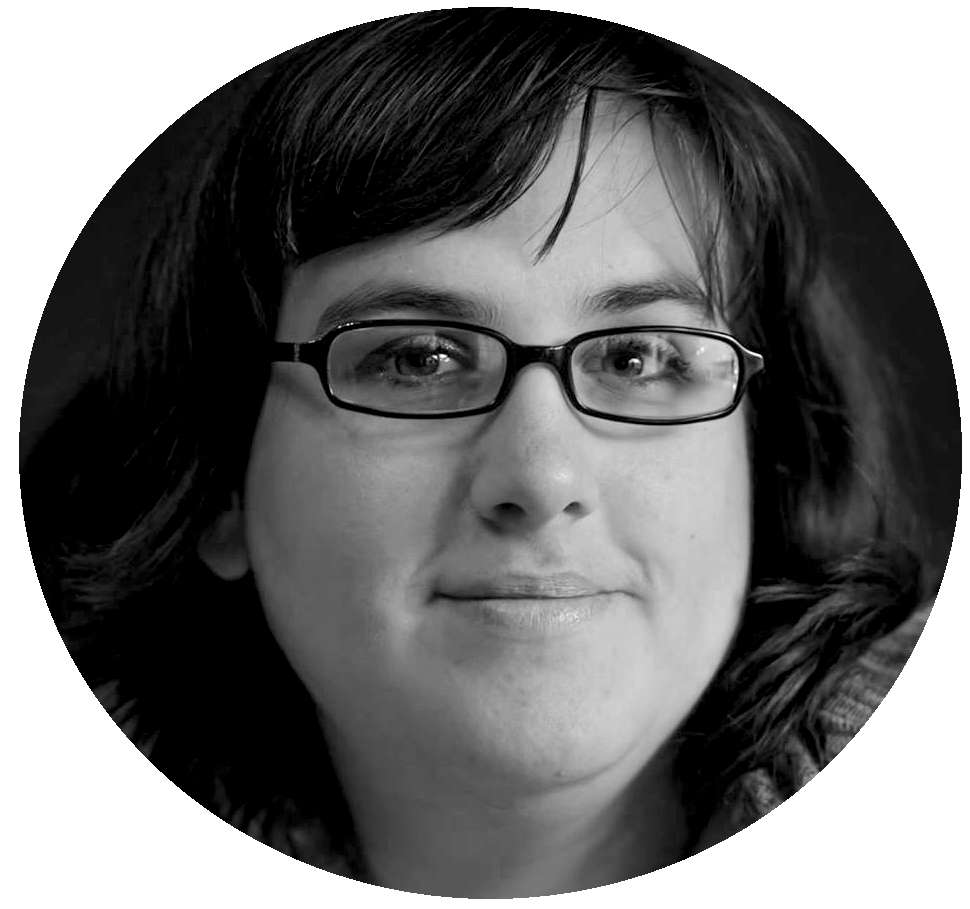Why our true crime obsession is bad for society
Is our cultural fixation on mass murderers making us insensitive jerks?


Once upon a time, I worked in a department store. Every day, during lunch hour, two of my co-workers commandeered the small TV in our break room. And every day, they watched breathless coverage dissecting the grisly crimes of Dennis Rader, aka the BTK Killer, an otherwise benign-looking white guy who, over the course of decades, stalked, bound, tortured, and killed 10 people (including an 11-year-old girl). My co-workers — a woman in her 20s and another in her 40s — were rapt: "He strangled that older woman with her pantyhose," one woman marveled. She spoke about this strangulation, the throat and fragile neck-bones of a 62-year-old collapsing in a nylon vise, as if describing some incredible deals in the swimsuit section. The other woman nodded sagely, taking a long gulp of soda, before waxing on about how there was supposed to be another victim, "but she stayed out too long, and BTK got tired of waiting at her house." She sounded disappointed.
Those two co-workers are the target audience for true crime fare like the popular Netflix series Mindhunter; the vast oeuvre of Charles Manson-related works; films like Dahmer and My Friend Dahmer (in case you wanted a kooky vision of the cannibal sadist as a young man); murder-oriented podcasts like season one of Serial, Sword and Scale, and All Killa No Filla (among so many others); and, of course, the Investigative Discovery network, which is devoted to true crime, all the time. But I worry that our current pop cultural fixation with serial killers (and, to a certain extent, with true crime as a whole) is turning us, collectively, into versions of those women, easily titillated by life-annihilating violence; able to oh-so-casually forget, or even acknowledge, the humanity of victims — many of whom are women, children, poor people, people of color, or members of the LGBTQ communities, people who already struggled to be seen as fully human, fully worthy, long before they trusted the wrong smile, got in the wrong car, or heard the window glass breaking.
I'm not alone in my concerns. Ramani Durvasula, a licensed clinical psychologist, believes that "these stories often get more play when they feature oppressed groups as victims — in essence, offering up the stories of victimized women, racial/ethnic minorities [as entertainment], and giving the perpetrators a moment of fame which could be perceived as reinforcing [their behavior]." The serial killer has become yet another bulwark of the Broody White Male Antihero™ trope, a trope that — given the current, and very long-overdue emphasis on the broader and lingering impact of sexual violence, and the very specific ways that women, POC, and LGBTQ people have suffered from that violence — should finally be retired.
Subscribe to The Week
Escape your echo chamber. Get the facts behind the news, plus analysis from multiple perspectives.

Sign up for The Week's Free Newsletters
From our morning news briefing to a weekly Good News Newsletter, get the best of The Week delivered directly to your inbox.
From our morning news briefing to a weekly Good News Newsletter, get the best of The Week delivered directly to your inbox.
Yet, when Charles Manson finally gave up the ghost in late 2017, media coverage of his death focused on his influence on pop culture, from Helter Skelter to South Park, and on the ways that the "Manson killings" will influence Quentin Tarantino's forthcoming movie. The movie is scheduled to open on Aug. 9, 2019, to mark the 50th anniversary of those killings, and this "hooray for Hollywood" approach, which treats the brutal slaughter of seven people (including, most famously, a pregnant woman) as a sideshow spectacle, speaks to how, at its worst, the true crime obsession manifests an abject callousness. And given that Tarantino's last film made a sport out of battering the lone woman lead (ending on an image of her hanged, twitching corpse), I'm not sure I trust him to handle Sharon Tate's death with anything resembling compassion.
Poorly executed crime stories also sloppily equate brutality with profundity. Work like My Friend Dahmer is praised for depicting the vulnerable teen years of the notorious rapist and killer of at least 17 young men and boys. The casting of Ross Lynch, the sunny Disney Channel star, was celebrated as a coup, a chance for a teen dream to prove his "serious acting chops." Likewise, High School Musical hunk Zac Efron assumed the role of Ted Bundy to free himself from a B-movie purgatory. The hubbub about his casting has focused on how "dark," how "edgy" his new part is. One headline from Hello Giggles, a site ironically geared toward teen girls and women in their early 20s, the very age group that Bundy targeted, swoons, "The latest picture from Zac Efron's serial killer movie has him smoldering and scheming." Smoldering and scheming — that's certainly a questionable way to describe the kidnappings, rapes, and murders of at least 30 women.
But these women, like all the victims of the killers who have become cause célèbre in our cultural mythos of toxic masculinity, have been largely erased from the story of their own deaths. Indeed, Durvasula cautions that when true crime stories focus so extensively on the perpetrators they devalue the victims, and, more broadly, "set a theme" that certain marginalized groups are "disposable." After all, the murdered girl has become a kind of pop cultural Madonna, beatified in the moment of her oblivion — but even then, only a certain kind of murdered girl (i.e. thin and white and conventionally pretty) seems to matter at all. The family of Hae Min Lee, the teenage girl whose brutal murder catalyzes Season One of Serial, which begat the new wave of true crime podcasts, has described the show's popularity as "[reopening] wounds few could imagine […] when so few are willing to speak up for Hae." On Reddit, Hae's brother guttingly criticized the podcast for turning his family's tragedy into fodder for case theories du jour: "To you listeners, its [sic] another murder mystery, crime drama, another episode of CSI. You weren't there to see your mom crying every night, having a heartattck [sic] when she got the new [sic] that the body was found. …"
My most significant qualm about the true crime zeal is that it lacks empathy for the victims, and that, all too often, it's content to regard merely portraying horrific acts of violence as a meditation on why, exactly, that violence occurs. But I may be something of a fuddy-duddy; after all, true crime remains enduringly popular — especially among women. Karla S. Mastracchio, a cultural studies professor who specializes in gender and pop culture, isn't surprised by this. "Women form communities around looking at serial killers (think My Favorite Murder meet-ups) because many women have felt the vulnerability that comes with being a woman in the world — and thanks to rape culture — collectively experience the kind of paranoia that comes with being vulnerable."
Mastracchio believes the women who will throng CrimeCon, make a gals' night out of that Zac Efron-as-Ted Bundy flick, and unwind after work with hours of Homicide Hunter are experiencing a kind of collective catharsis: "[It] reminds women that we are not alone in feeling unsafe."
And yet, the prevalence of the genre, with its constant zip and twitter of sexualized violence, has had the opposite effect on me. I remember leaving that employee break room, letting my colleagues enjoy their murderfest in peace, and heading to ladies' hosiery. As I organized packets of extra-strength pantyhose, I felt a leadenness in my belly and a sickening heat in my chest at the knowledge that a woman's life ended under a garment she probably wore every day, and probably gave no prior thought to unless it snagged. That knowledge somehow seemed both sacred and profane. Certainly, never something that should be gawked at, or turned into a spectacle for the ratings.
Create an account with the same email registered to your subscription to unlock access.
Sign up for Today's Best Articles in your inbox
A free daily email with the biggest news stories of the day – and the best features from TheWeek.com
Laura Bogart is a featured writer for Salon and a regular contributor to DAME magazine. Her work has appeared in The Atlantic, CityLab, The Guardian, SPIN, Complex, IndieWire, GOOD, and Refinery29, among other publications. Her first novel, Don't You Know That I Love You?, is forthcoming from Dzanc.
-
 Fallout: one of the 'most faithful – and best – video game adaptations'
Fallout: one of the 'most faithful – and best – video game adaptations'The Week Recommends This 'genre-bending' new Amazon series is set in a post-apocalyptic wilderness where survivors shelter below ground
By Adrienne Wyper, The Week UK Published
-
 'Test of faith for Trump Media's investors'
'Test of faith for Trump Media's investors'Today's Newspapers A roundup of the headlines from the US front pages
By The Week Staff Published
-
 Will Iran attack hinder support for Ukraine?
Will Iran attack hinder support for Ukraine?Today's Big Question Pro-Kyiv allies cry 'hypocrisy' and 'double standards' even as the US readies new support package
By Elliott Goat, The Week UK Published
-
 Walter Isaacson's 'Elon Musk' can 'scarcely contain its subject'
Walter Isaacson's 'Elon Musk' can 'scarcely contain its subject'The latest biography on the elusive tech mogul is causing a stir among critics
By Theara Coleman Published
-
 Welcome to the new TheWeek.com!
Welcome to the new TheWeek.com!The Explainer Please allow us to reintroduce ourselves
By Jeva Lange Published
-
 Late night hosts lightly try to square the GOP's Liz Cheney purge with its avowed hatred of 'cancel culture'
Late night hosts lightly try to square the GOP's Liz Cheney purge with its avowed hatred of 'cancel culture'Speed Read
By Peter Weber Last updated
-
 Late night hosts survey the creative ways America is encouraging COVID-19 vaccinations, cure 'Foxitis'
Late night hosts survey the creative ways America is encouraging COVID-19 vaccinations, cure 'Foxitis'Speed Read
By Peter Weber Published
-
 The Daily Show's Trevor Noah carefully steps through the Israel-Palestine minefield to an 'honest question'
The Daily Show's Trevor Noah carefully steps through the Israel-Palestine minefield to an 'honest question'Speed Read
By Peter Weber Last updated
-
 Late night hosts roast Medina Spirit's juicing scandal, 'cancel culture,' and Trump calling a horse a 'junky'
Late night hosts roast Medina Spirit's juicing scandal, 'cancel culture,' and Trump calling a horse a 'junky'Speed Read
By Peter Weber Last updated
-
 John Oliver tries to explain Black hair to fellow white people
John Oliver tries to explain Black hair to fellow white peopleSpeed Read
By Peter Weber Published
-
 Late night hosts explain the Trump GOP's Liz Cheney purge, mock Caitlyn Jenner's hangar pains
Late night hosts explain the Trump GOP's Liz Cheney purge, mock Caitlyn Jenner's hangar painsSpeed Read
By Peter Weber Published